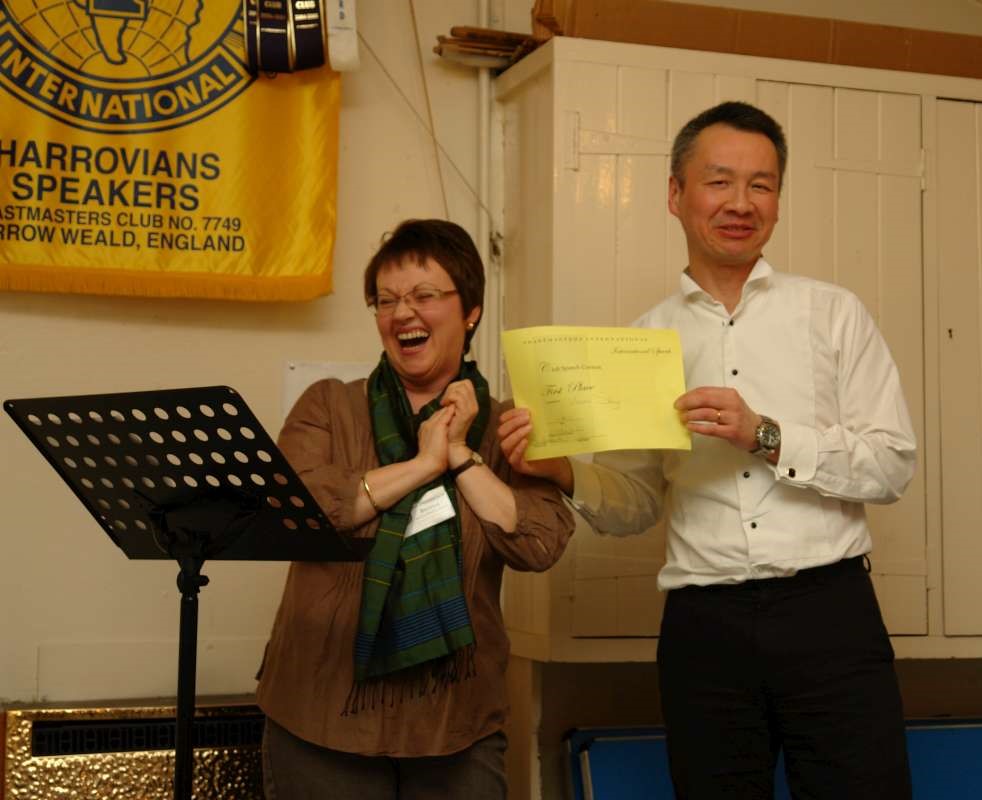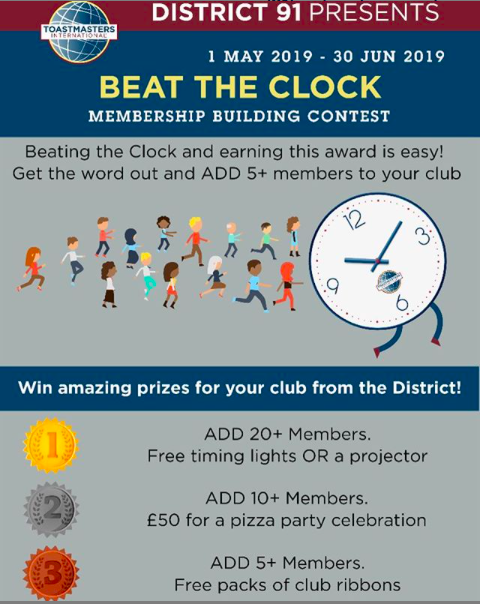by Shaheen Jamshed Mufti, Early Bird Speakers, DivC Area45

Good succession planning in a club ensure the club’s longevity well beyond the departure of the current committee and make sure that the club can continue to grow, thrive and be run efficiently in years to come.
Good succession planning starts early and begins well before the end of this Toastmasters year (30th June 2019).
Good succession planning makes sure that all members of the incoming club committee/leadership team have been well equipped with the necessary tools, knowledge and data to lead the club in the upcoming year.
It all begins with the current leadership team/committee members starting to talk to club members (both new and longstanding) regarding taking on roles in the upcoming Toastmasters year.
The following excerpt is taken from the role guide I created for my successor:
“As you approach the second half of your Toastmasters year, it is a good time to start planning for succession within Early Bird Speakers.
Request that members of your leadership team members to begin conversations with club members; encouraging them to consider leadership roles in the upcoming elections taking place in May. Perhaps, some of your team members might even consider standing for roles in the coming elections.
Remind your team to highlight the benefits of being part of the leadership team in Early Bird Speakers as well as the expectation of members within to serve on the leadership team (TMI Promise #6 : “To serve my club as an officer when called upon to do so”)
Liaise with your Immediate Past President who will also be the leader of the nominations committee*. Working alongside a small team, they will organise any workshops, the nominations process and the elections for the club.
Invite your team members to look out for potential successors not only for their respective roles but also for other roles within the rest of the leadership team as well.”
*This might vary depending on the club culture
Some clubs (particularly newly formed ones) with fewer members might struggle to appoint members to roles due to numbers. Similarly, some members might stay on and serve in the same role for a couple of terms consecutively as the club grows. One way to alleviate ennui and prevent burn-out would be to ‘cycle’ the roles and have the leadership team members adopt different roles as they begin to ease in new members into those roles, whilst growing the club.
March/April – Creating Role Guides
Any company worth their salt in the modern world has effective systems in place to make sure that future employees, whether temporary or permanent, have all the relevant information they need for the role.
Likewise, it is advisable for a Toastmasters club to create role guides so that successors to each role will have a guide to refer to during the year.
Role guides can include:
-Information about the role’s official responsibilities from Toastmasters International
-Information about the role specific to the club
-Day-to-day activity, at the club and behind the scenes
-Login details and passwords for any relevant software/accounts being used
-Legal documentation (GDPR etc)
-Contact list (relevant to the role)
Also, the guide can be accompanied by a pack containing items relevant for the role, for example:
-Financial documents to the new Treasurer
-Keys, keycards and other bits to the new Sergeant-at-Arms
The TMI website provides the Club Leadership Handbook that provides useful foundations on how to perform roles. A dedicated role guide for each role within your club will capture the nuances and you build upon it over time; adding and removing elements where necessary. If a role guide already exists, then consider how it can be improved upon.
April – Election preparation (depending on the culture of the club)
According to the official TMI Club Leadership handbook (attached), elections should be carried out on the first week of May. April is typically a good time to begin preparing for the elections.
The person to lead and organise the elections may also vary, though it is usually the Immediate Past President. The handbook provides information on how to conduct those.
Club members interested in running for a role can reach out to the leader/organiser of the elections
May – Elections
Elections take place and the club committee/leadership team is elected into office.
May/June – the handover begins
After the elections, outgoing leadership team/committee members can begin the handover process; instructing the successor on what the role involves and other activity surrounding it such as Club Officer Training, etc
Role guide should be given to the incoming members along with the relevant official TMI documents.
The outgoing committee members can begin involving their successors with some of the tasks of the role so that when the time comes for them to fully take over on 01 July 2019, it will be more familiar.
Make sure that the names of the incoming team are submitted on the Toastmasters International website!
1st July and onwards – A new year and continued advice/support
Once the new leadership team/committee has taken over, this doesn’t necessarily mean that the outgoing team will abandon them!
The outgoing team members can serve as advisors and support for their successor, providing guidance as they get acclimatised to their roles.
I’d also like to add that it might be a good idea to think about succession from the moment a new member is inducted and to be sure that they appreciate the TM Promise rule 6 and why it is important for the whole club.
All going well, the cycle continues and your club will continue to flourish!
3 point Summary:
- Start talking to your club members about the roles available in the upcoming elections
- Prepare role guides/packs for your successors
- Be available to provide support for your successors once they are in office
I wish you and your club all the best in your upcoming elections and that your club and the incoming team have a prosperous year ahead.



